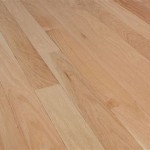Hardwood Floor Transition To Tile
When two different flooring materials meet, such as hardwood and tile, a transition strip is used to create a smooth and visually appealing connection. Transition strips come in a variety of materials, including wood, metal, and plastic, and can be chosen to match the color and style of either the hardwood or tile flooring. In this article, we will discuss the different types of transition strips available and how to choose the right one for your project.
Types of Transition Strips
There are three main types of transition strips: T-mold, reducer, and end cap. T-mold is the most common type of transition strip and is used when the two flooring materials are of the same height. Reducer is used when one flooring material is higher than the other, and end cap is used to finish the edge of a flooring material.
T-mold transition strips are available in a variety of materials, including wood, metal, and plastic. Wood T-mold is the most popular choice because it can be stained or painted to match the hardwood flooring. Metal T-mold is a good choice for areas with heavy traffic, as it is more durable than wood. Plastic T-mold is the least expensive option and is available in a variety of colors.
Reducer transition strips are also available in a variety of materials, including wood, metal, and plastic. Wood reducer is the most common choice because it can be stained or painted to match the hardwood flooring. Metal reducer is a good choice for areas with heavy traffic, as it is more durable than wood. Plastic reducer is the least expensive option and is available in a variety of colors.
End cap transition strips are available in a variety of materials, including wood, metal, and plastic. Wood end cap is the most popular choice because it can be stained or painted to match the hardwood flooring. Metal end cap is a good choice for areas with heavy traffic, as it is more durable than wood. Plastic end cap is the least expensive option and is available in a variety of colors.
How to Choose the Right Transition Strip
When choosing a transition strip, there are several factors to consider, including the type of flooring materials, the height of the flooring materials, and the amount of traffic the area will receive. If the two flooring materials are of the same height, a T-mold transition strip is the best choice. If one flooring material is higher than the other, a reducer transition strip is the best choice. If the edge of the flooring material needs to be finished, an end cap transition strip is the best choice.
The material of the transition strip should also be considered. Wood transition strips are the most popular choice because they can be stained or painted to match the hardwood flooring. Metal transition strips are a good choice for areas with heavy traffic, as they are more durable than wood. Plastic transition strips are the least expensive option and are available in a variety of colors.
The amount of traffic the area will receive should also be considered when choosing a transition strip. If the area will receive heavy traffic, a metal transition strip is the best choice. If the area will receive light traffic, a wood or plastic transition strip is a good choice.

Tile Transition Strips How To Handle Flooring Transitions

Tile Transition Strips How To Handle Flooring Transitions

Smooth Tile To Wood Floor Transitions For A Beautiful Finish

How To Transition Between Floor Surfaces Heavenly Heat

Smooth Tile To Wood Floor Transitions For A Beautiful Finish

Understanding Wood To Tile Transitions Flooring Masters Pro Remodeling

Tile To Wood Floor Transition Ideas 11 Clever Ways Atlas Ceramics

Tile Transition Strips How To Handle Flooring Transitions

How Can I Create An Invisible Transition Between Different Flooring Types

11 Kitchen Tiles To Wood Floor Transition Ideas








